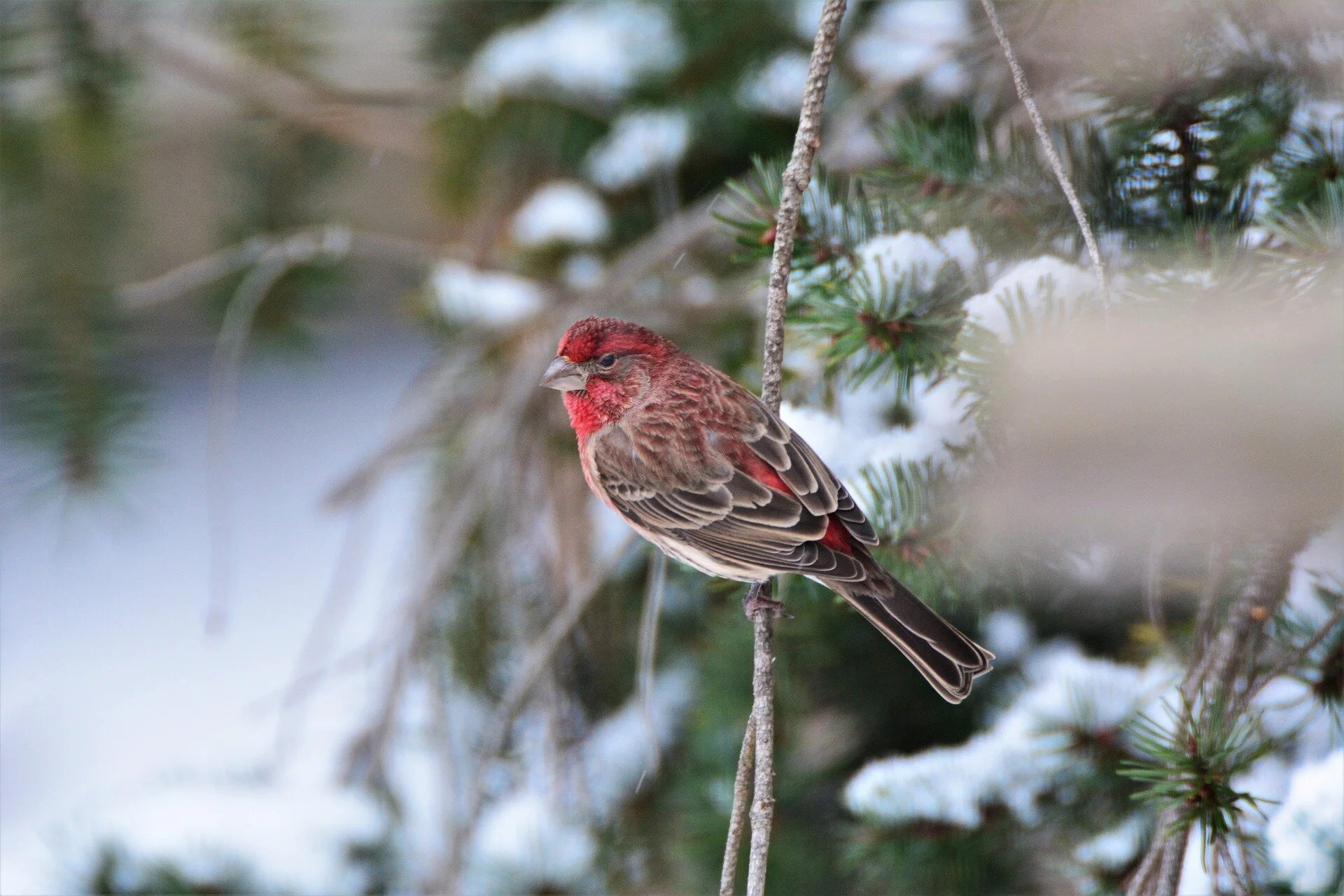WFFs: Well-Formed Formulas and Well-Fed Finches
It’s Sunday morning in Idaho Falls as I write this, strangely devoid of snow for this late in November. It should be a quiet day overall. I have to make a video for my online Introduction to Logic class, which is now in the home stretch for the semester, the conclusion of this crazy coronavirus-filled year—2020, a year which will, as Franklin Roosevelt said about another crazy year in American and world history, live in infamy.
Despite the many twists, turns, and challenges of this year, life in the natural world goes on. At this very moment there is a gaggle of well-fed finches—house finches—at our bird feeding station outside our apartment window, and we even had an usual visitor this morning in the form of a lone Lesser goldfinch, a rare visitor indeed considering that Idaho Falls is well outside the Lesser goldfinch’s normal migratory range for this time of year—perhaps itself a sign of ongoing climate change since its range map was last redrawn.
Seasons change, as do climates, as do human lives, and yet the omnipresence of life on Earth, and the near-constant presence of birds now at our bird-feeding station, have the constancy and reliability of the most tautological, or self-evident, of logical expressions. Even with the challenges and dangers of climate change for all life on Earth, the stillness of a winter’s day and the near ubiquity of life in even the tiniest nooks and crannies of the Earth, gives one reason for stillness amidst the rough waters of the times and transcendence above the turbulence of human life.
These WFFs—both the well-formed formulas of deductive logic and the well-fed finches outside our window—reveal the many forms of transcendence to be found in human consciousness. Some of us find solace in mathematical and logical precision with its Cartesian reliability and Platonic assuredness that persist even in the most discombobulated ages of human history. Others, like Thoreau and like nature enthusiasts of all varieties, from birders to mountaineers to oceanographers, find solace in the still waters, and perhaps even in the drama, of nature itself with its cool indifference to our purely human affairs.
And although one might argue that both pursuits, from those of the naturalist to those of the logician, share a type of Nietzschean glee, the type of philosophical and scientific escapism about which Nietzsche had much to say in his book The Gay Science (i.e., “The Happy Science”), the existentially calming effect of the stable, the mathematical, the natural, and the eternal alike on the human spirit cannot be denied, at least in the moment when these oases reveal themselves to us, or when we go looking for them.
So later today, after another cup of coffee, itself another form of transcendence and morning bliss, amongst others to be named only euphemistically, I will make my weekly logic video and bask in the reliable glow of well-formed formulas (WFFs) with their illuminated Platonic fixedness while our well-fed finches keep themselves warm and alive to fight and to fly another day via the chemical and biological processes upon which all life depend, concerning themselves with their avian culinary affairs while I concern myself with my uniquely human ones in the form of logic and philosophy and consume my daily bread throughout the day in much the same way. So much for human exceptionalism in the face of nature and the vastness of the cosmos it inhabits!
As Marcus Aurelius once said in his Meditations, we must do our part to make order out of the chaos in our own little corners of the cosmos, finches and philosophers alike—to construct a Well-Formed World (WFW) for us all.







